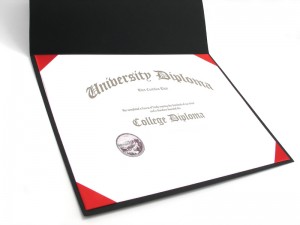Last week, I wrote about putting together care packages. After being contacted by Doteable.com about their care package service, I asked them to write a guest post.
Here at Doteable headquarters, we spend all of our waking hours thinking about how to package care and love. We know how much thought and effort our parents put into, well, everything. Allison Tate, mother of four, writes:
“People, including my children, … don’t know how I walk the grocery store aisles looking for treats that will thrill them for a special day.”
She continues, “I spend hours hunting the Internet and the local Targets for specially-requested Halloween costumes and birthday presents.”
It’s stressful and time-consuming. Four ways Doteable helps:
- Relevant. We’re recent college grads, we were there. My mom sent care packages sporadically, and after the third flashlight I received, I thanked her – but, please, Mom: cease and desist. I heard this story over and over when talking to other parents, aunts, and uncles: we want to send our students care packages, we just don’t know what to put in them. Our duffels receive great reviews from subscribers and always include healthy surprise treats.
- Value. 1) We don’t operate a brick-and-mortar store with sales and real estate costs, and 2) our subscription model minimizes the cost of holding unsold products. We pass on these savings to our subscribers: that’s why our dorm duffels have a retail value of over $70 (pre-shipping costs, which we also cover). If you don’t like an item in our duffel, you can pass it on to a friend, guilt-free.
- Time. Allison Tate spends “hours hunting the Internet” for gifts. We are expert Internet-hunters and are more than happy to help free up your hours.
- Lend a hand. For every duffel we ship, we donate a pair of socks to a family in need.
Ultimately, we’re here to simplify the transition to college – for both parents and students. Below are our top five resources for transitioning to and thriving in college:
- CollegeConfidential.com
I pored over the College Confidential forums before and during my college application process – but these institution-specific discussion boards are just as useful after you’ve gotten in.
- Course reviews
Picking your major, what courses to take, and what extracurricular activities to participate in can be a daunting task for someone with two dozen different interests and talents.
- Professors
Professors are intimidating, but they’ve been at your institution much longer than you have – take advantage of that wisdom! They are intimately familiar with the resources that are available and how to best utilize them.
- On-campus advisors
It’s part of their job to guide you and answer your questions. And trust me, they love to be helpful. They too are well-versed in the various opportunities your school has to offer.
- Upperclassmen
At the end of the day, you trust the people closest to you. Ask your upperclassmen friends for guidance: What courses should I take? How do I do well in those courses? What fellowships or internships should I pursue, and what do I need to focus on to successfully pursue them?
Taking full advantage of the aforementioned resources requires asking the right questions. Articulate what you want to accomplish long-term (think five and ten years out) and write out what you want to get out of a conversation before seeking out mentorship. This will help you figure out what questions to ask. I think you’ll find that people love being helpful if you come to the table prepared.
And for parents and students transitioning out of college life? Well, there’s always this helpful guide from the New Yorker’s Simon Rich.
___________
Giselle Cheung is CEO at doteable.com. She is a 2010 graduate of Harvard College and a former Morgan Stanley research analyst. She tweets from @doteable and is on hand to answer your questions here.











